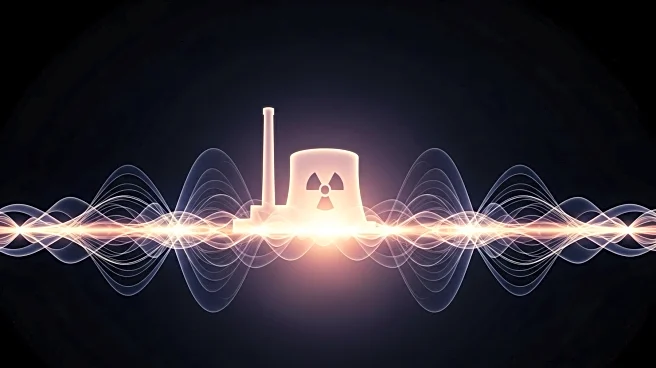What's Happening?
The Zaporizhzhia nuclear plant in Ukraine has been without external power for over three days, relying on emergency generators to maintain cooling and safety systems. The outage has raised significant safety concerns, with experts warning of the potential for a nuclear accident. The International Atomic Energy Agency's director, Rafael Grossi, has expressed deep concern over the situation. Ukrainian officials and Greenpeace fear that Russia may be using the crisis to consolidate control over the plant, which is Europe's largest nuclear facility. Stress tests indicate that nuclear plants should not operate without external power for extended periods, and the current situation is unprecedented.
Why It's Important?
The prolonged outage at the Zaporizhzhia plant poses a serious risk of a nuclear accident, which could have devastating consequences for Ukraine and surrounding regions. The situation highlights the vulnerabilities of nuclear facilities in conflict zones and the potential for geopolitical tensions to impact nuclear safety. The crisis underscores the importance of international oversight and intervention to prevent nuclear disasters. It also reflects broader geopolitical dynamics, with Russia potentially using the plant as leverage in its conflict with Ukraine, affecting regional stability and international relations.
What's Next?
Efforts to restore external power to the Zaporizhzhia plant are ongoing, with Russian operators claiming sufficient diesel reserves for the generators. The International Atomic Energy Agency continues to monitor the situation, and further diplomatic engagements may be necessary to resolve the crisis. The potential restart of a reactor by Russia could escalate tensions and require international intervention. The situation may also influence future discussions on nuclear safety protocols and the role of international agencies in conflict zones.
Beyond the Headlines
The crisis at the Zaporizhzhia plant raises ethical and legal questions about the use of nuclear facilities as strategic assets in warfare. It highlights the need for robust international frameworks to protect nuclear sites and ensure their safety during conflicts. The situation may lead to long-term shifts in nuclear policy and international cooperation on nuclear safety and security.









